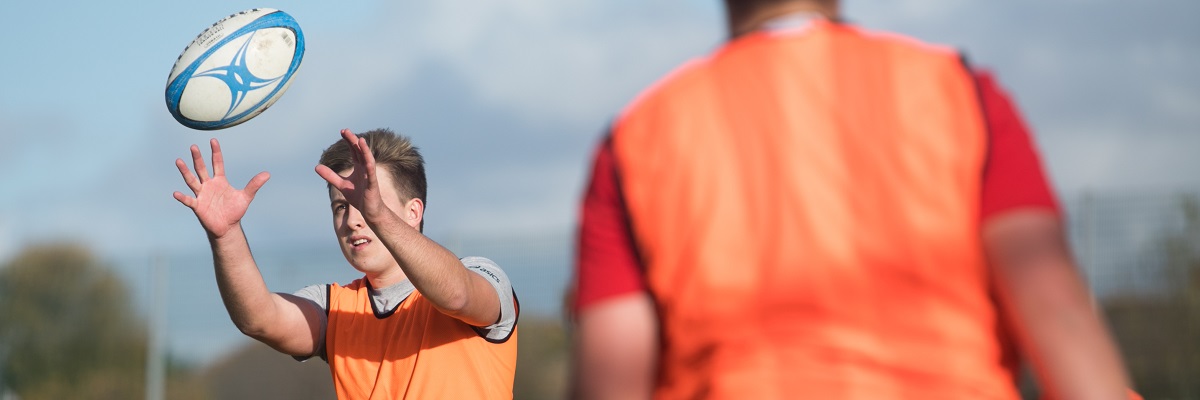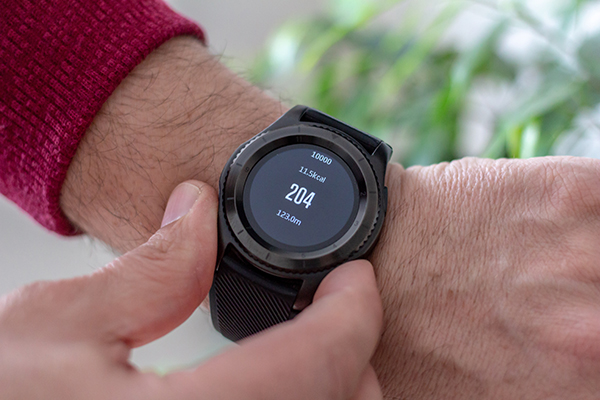

Are you studying a Sports course at South Downs Campus in September? If so, you’re in the right place!
Welcome to Sport at HSDC South Downs. You will study a mix of theoretical and practical units across the Level 2 and 3 courses you have enrolled on with us for the next academic year. This will range from the more practical fitness, coaching and performance assessment-based units, to the more theoretical and underpinning sports development and scientific units. Below are some common topics across our courses, with some activities to help prepare and develop your skill set and knowledge base before you join us in September.
Please send your Getting Ahead work to – Gettingahead-sportsd@hsdc.ac.uk
Did you know? HSDC Sport department has an annual trip to Club La Santa to live the athlete lifestyle.
Follow us on Instagram to see what other activities and stories past and current students have been up to and what you can expect to do from September, @be_hsdc

It’s important to be able to name all the bones in the body. Use this website to download an image of a skeleton and then label all of the bones.
Knowing the names, location and function of the muscles help us understand how the body moves. Using this website, complete the word search.
Once you’ve found all of the words in the word search, outline the function of each muscle (what movement/s does it cause?).
You could also use this website to play the muscle labelling game.
As a Coach, PE teacher or Personal Trainer, there are often reasons given to you as to why your client thinks they can’t train, for example, lack of money, self-esteem or time. Complete the table below describing each of these and in the next column suggest ways that they can be overcome.
Here are some examples of athletes who were creative with their training during lockdown for inspiration:
The Guardian: Athletes Find Inventive Ways to Train During Coronavirus
The Guardian: Working Out From Home
| Reasons why clients can’t train | How can you overcome this? |
|---|---|
| Lack of money |
|
| Self-esteem |
|
| Time |
|
Sport Psychology is a key element of both coaching and performance at both the grassroots and elite levels, including how stress, arousal, anxiety and personalities can all have an influence on individual and team performance and success.
Answer the following 10 questions quickly and honestly without over-thinking them too much in order to determine your predicted personality profile. Write down the letter that best suits your response to each question so you can score it afterwards.
1. When do you feel your best?
a) In the morning
b) During the afternoon and early evening
c) Late at night
2. You usually walk
a) Fairly fast, with long steps
b) Fairly fast, with little steps
c) Less fast, head up, looking the world in the face
d) Less fast, head down
e) Very slowly
3. When talking to people you
a) Stand with your arms folded
b) Have your hands clasped
c) Have one or both your hands on your hips
d) Touch or push the person to whom you are talking
e) Play with your ear, touch your chin, or smooth your hair
4. When relaxing, you sit with
a) Your knees bent with your legs neatly side by side
b) Your legs crossed
c) Your legs stretched out or straight
d) One leg curled under you
5. When something really amuses you, you react with
a) A big, appreciative laugh
b) A laugh, but not a loud one
c) A quiet chuckle
d) A sheepish smile
6. When you go to a party or social gathering you
a) Make a loud entrance so everyone notices you
b) Make a quiet entrance, looking around for someone you know
c) Make the quietest entrance, trying to stay unnoticed
7. You’re working very hard, concentrating hard, and you’re interrupted; do you …
a) welcome the break
b) feel extremely irritated
c) vary between these two extremes
8. Which of the following colours do you like most?
a) Red or orange
b) Black
c) Yellow or light blue
d) Green
e) Dark blue or purple
f) White
g) Brown or grey
9. When you are in bed at night, in those last few moments before going to sleep, you lie
a) stretched out on your back
b) stretched out face down on your stomach
c) on your side, slightly curled
d) with your head on one arm
e) with your head under the covers
10. You often dream that you are
a) falling
b) fighting or struggling
c) searching for something or somebody
d) flying or floating
e) you usually have dreamless sleep
f) your dreams are always pleasant
To work out your result, see the below ‘Questionnaire Answers’ tab.
Now score your responses for each question as follows and add it up at the end. For example: if you responded (a) for question 1 you get 2 points, (b) 4 points and (c) 6 points:
Q1. (a) 2 (b) 4 (c) 6
Q2. (a) 6 (b) 4 (c) 7 (d) 2 (e) 1
Q3. (a) 4 (b) 2 (c) 5 (d) 7 (e) 6
Q4. (a) 4 (b) 6 (c) 2 (d) 1
Q5. (a) 6 (b) 4 (c) 3 (d) 5 (e) 2
Q6. (a) 6 (b) 4 (c) 2
Q7. (a) 6 (b) 2 (c) 4
Q8. (a) 6 (b) 7 (c) 5 (d) 4 (e) 3 (f) 2 (g) 1
Q9. (a) 7 (b) 6 (c) 4 (d) 2 (e) 1
Q10. (a) 4 (b) 2 (c) 3 (d) 5 (e) 6 (f) 1
OVER 60 POINTS: Others see you as someone they should “handle with care”. You’re seen as vain, self-centred, and someone who is extremely dominant. Others may admire you, wishing they could be more like you, but don’t always trust you, hesitating to become too deeply involved with you.
51 TO 60 POINTS: Others see you as an exciting, highly volatile, rather impulsive personality; a natural leader, who’s quick to make decisions, though not always the right ones. They see you as bold and adventuresome, someone who will try anything once; someone who takes chances and enjoys an adventure. They enjoy being in your company because of the excitement you radiate.
41 TO 50 POINTS: Others see you as fresh, lively, charming, amusing, practical, and always interesting; someone who’s constantly in the centre of attention, but sufficiently well-balanced not to let it go to their head. They also see you as kind, considerate, and understanding; someone who’ll always cheer them up and help out.
31 TO 40 POINTS: Others see you as sensible, cautious, careful & practical. They see you as clever, gifted, or talented, but modest. Not a person who makes friends too quickly or easily, but someone who’s extremely loyal to friends you do make and who expects the same loyalty in return. Those who really get to know you realise it takes a lot to shake your trust in your friends, but equally that it takes you a long time to get over it if that trust is ever broken.
21 TO 30 POINTS: Your friends see you as painstaking and fussy. They see you as very cautious, extremely careful, a slow and steady plodder. It’d really surprise them if you ever did something impulsively or on the spur of the moment, expecting you to examine everything carefully from every angle and then usually decide against it. They think this reaction is caused partly by your careful nature.
UNDER 21 POINTS: People think you are shy, nervous, and indecisive, someone who needs looking after, who always wants someone else to make the decisions and who doesn’t want to get involved with anyone or anything. They see you as a worrier who always sees problems that don’t exist. Some people think you’re boring. Only those who know you well know that you aren’t.
Do you agree with your result? If you don’t, find the description that best suits you and ask yourself the following questions in relation to the personality type and sport.
These are the kind of questions and thought processes you will need to help understand and be successful in your Psychology units and will enable you to understand and discuss how psychological theory relates to both individual and team performance. Keep a lookout for any interesting stories over the summer that may link to the psychology of athletes, teams or performers as they will be welcomed for discussion in your lessons.
Read this article and answer the following questions:
Watch the following YouTube clips.
Identify the muscular system as well as what makes up the anatomy of the Olympian.
TEDEd – How your muscular system works
Describe the three different muscle types and give examples. Produce a fact sheet to accompany this clip summarising the key points.
Anatomy of an Olympian
Check out our residential that waits for you in Year 2 of the programme – Club La Santa in Lanzarote: one resort with untold opportunities to push yourself alongside elite athletes. Check out our students getting involved and the amazing venue.
HSDC uses a variety of high-tech analysis equipment for Sports Science. This includes OptoJump, timing gates and force platforms.